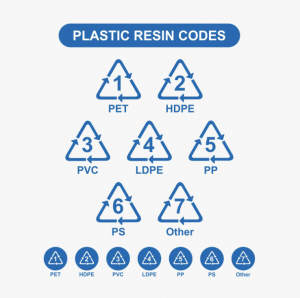Reality of Plastic Ban
Earlier last month, it was revealed that UAE would be limiting ‘single-use’ plastic bags, a sustainable move towards the complete elimination of plastic in the emirate. The element of ‘convenience’ makes plastic one of the most widely used substances and it is the same wide use that harmed our environment for so long.
Apart from UAE, several other nations have started limiting or banning plastic bags due to their implication for nature and humans alike.
Types of plastic: –

- Polyethylene Terephthalate is commonly used in the manufacture of edible oil bottles, soft drinks, juices and frozen/ready-to-eat meal cans. Due to the possibility of bacteria growth, PET products are used only once.
- High-Density Polyethylene (HDPE) is is a thermoplastic polymer made from petroleum and is commonly used in bottles of dishwashing soaps, milk, juice cartons, freezer cans/bags, water bottle caps, protective helmets, car fuel tanks and gas tubes. The chemical elements inside are active only at natural temperatures.
- Polyvinyl Chloride (PVC) is commonly used in furniture, water pipes and tubes, floors, cables, plastic sheets, water bottles, banners and medication strips. PVC releases carcinogens when exposed to high temperatures.
- Low-Density Polyethylene (LDPE) is commonly used in garbage bags, laundry bags, rubber food storage bags, making some computer parts, laptops, and protective covers, and it can be used several times, as it does not transfer chemicals to the elements stored inside in normal temperatures.
- Polypropylene (PP) is commonly used in surgical instruments, bottle caps, food safe containers, packaging tapes, plastic water boilers and plastic bags and can be used multiple times safely, as it does not transfer chemicals to the items present inside in normal temperatures.
- Polystyrene (PS) is commonly used in medical devices (test tubes, petri dishes) or for everyday objects such as smoke detectors, CDs, Food detectors, Coffee cups and polymer foam, is also commonly used as a packaging material for a variety of products.
- ‘Other’ – used in the general-purpose category for acrylic, nylon and other plastics.
Here are some dominant reasons why this move of limiting plastic use is justified: –
Plastic bags pollute – most of the plastic waste that is generated on land ends up in the ocean due to its downstream location. Out of several million tons of debris, most of it is plastic and this affects water bodies and the life within. How would you like it if someone throws plastic waste at your home every day?
Plastic bags are toxic – this is no new info that plastic bags take many years to decompose and additionally, plastic when perishes in the sun releases toxic substances.
Affects life – Life cannot be categorized here as the toxins released by plastic affect all sorts of life in the environment. It pollutes air, water, soil/land and the beings who dwell in this environment.
Human Health – The same toxins released by the plastic when exposed to humans can be linked to birth defects, immunity issues, ailments like cancer and many more.
Hidden costs – Apart from the private production costs, there are many hidden costs for producing plastic bags. Since we have healthier and sustainable substitutes, incurring high costs, in the long run, is simply not worth it.
Even recycling is not a perfect solution, as it still needs deploying resources. Plastic production needs natural gas, oil, plant materials and other stuff that affects the environment. Reports suggest that to produce 1500 plastic bags from natural gas; you need 33 pounds of fossil fuel and approx. 58 gallons of fresh water, resulting in 15 pounds of solid waste and 0.04 tons of Carbon Dioxide.
Gradually, we need to say NO to plastic use entirely and thanks to the vision of wise leadership; we are on the right track.
What do you think about the new limitation on single-use plastic bags in Dubai hypermarkets? Share your views with us!
Footnote & Reference Links:
Plastic bags and issue with recycling
















 P.O Box :
P.O Box : 
 2023 UNION COOP. All Rights Reserved
2023 UNION COOP. All Rights Reserved



Leave Comment